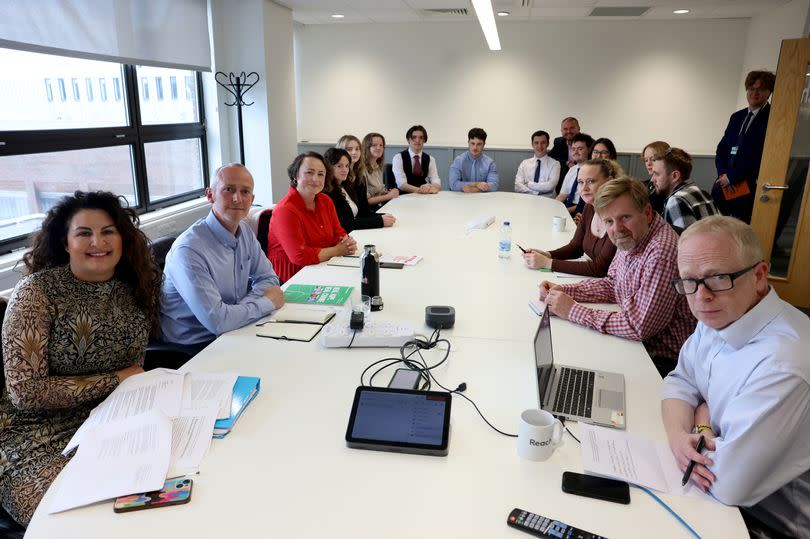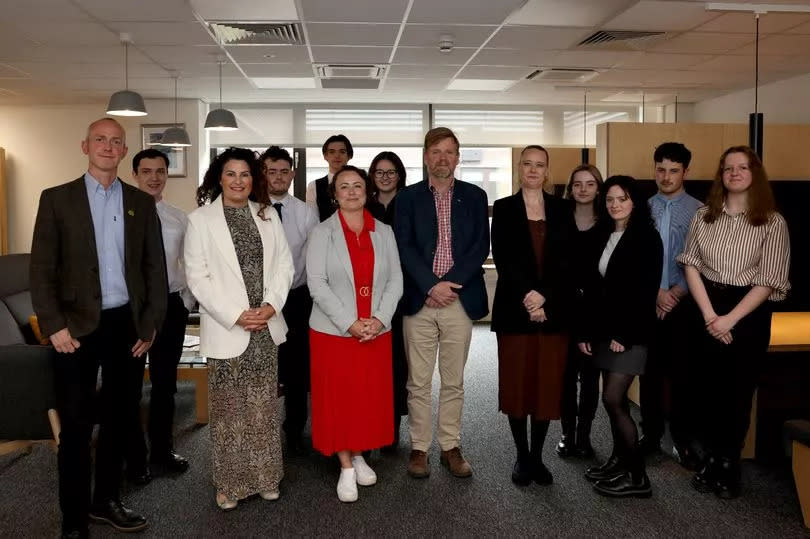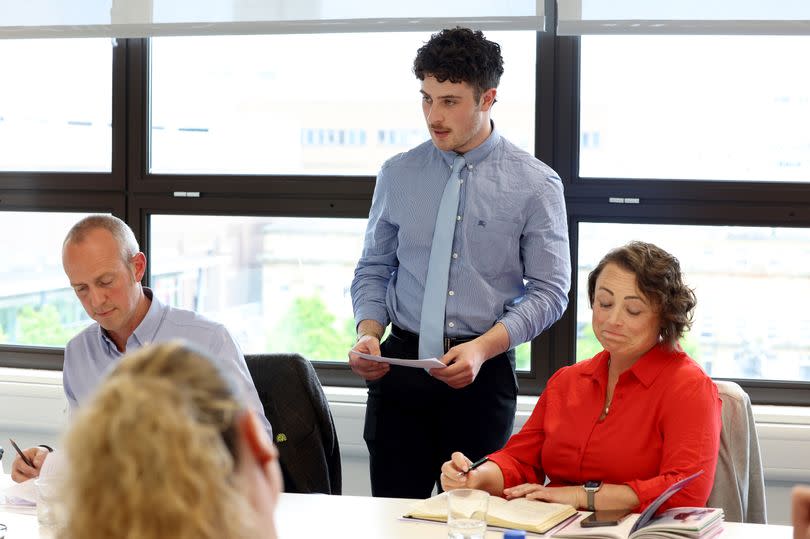North East general election candidates taken to task in ChronicleLive hustings debate

General election rivals in the North East were taken to task on Thursday over how they would combat soaring child poverty rates, the future of the NHS, pollution in our waterways, and more.
Candidates from the five main parties contesting seats at the July 4 election took part in a special hustings hosted by ChronicleLive in Newcastle, two weeks before the UK goes to the polls. Clashing over issues including the two-child benefit cap and Tory plans for a new national service scheme were candidates Catherine McKinnell (Labour, Newcastle North), Nick Oliver (Conservative, Gateshead Central and Whickham), Natalie Younes (Liberal Democrat, North Northumberland), David Francis (Green, South Shields), and Lynn Murphy (Reform UK, Easington).
As well as taking questions sent in by Chronicle readers during the debate, chaired by Journal editor Graeme Whitfield, a group of students from St Joseph’s Academy in Hebburn also challenged the candidates on key issues affecting young people. The full debate is available to listen to via the Northern Agenda podcast feed below.
Mr Oliver, a Tory councillor in Corbridge, defended his party’s record in the North East since winning a number of traditional Labour seats here in 2019 – with former prime minister Boris Johnson having pledged at the time to repay voters’ trust. He said: “It has been a very challenging time – I don’t think anybody was expecting the Covid crisis or the war in Ukraine.
"But I think we have actually delivered a lot. I think in this region we had a situation since I was a child where we had Labour Party dominance and the Labour Party had taken the region for granted – even when during the Blair government we had lots of cabinet ministers from this region.”
But Ms McKinnell said that the “chaos” under Conservative rule over recent years had prevented change being delivered in the North East, promising “stability” under a Labour administration and policies such as a revamp of high streets and multi-year funding to allow local councils to invest for the future. Mr Francis complained that funding for local services had been “slashed to the bone” and said the Greens would inject £5 billion per year to ensure basic public services can be restored.
Ms Murphy said that areas like Teesside, with an elected Tory mayor and several blue MPs, had done “extremely well” in recent years but claimed that funding had not been spread to other areas. She highlighted the number of disused mining houses in Easington, saying that residents had been waiting to see them regenerated and were “petrified” that they would be turned into HMOs.

The candidates were debating in a part of Newcastle where more than 40% of children are growing up in poverty and the Green, Lib Dem, and Reform candidates all called for the end of the two-child benefit cap. Challenged on why Labour will not commit to removing the limit, Ms McKinnell said her party would “only make promises we know we can pay for”.
Talking up a pledge to create more nursery places and put free breakfast clubs into every primary school, she added: “Our priority is to put support in for children and ensure that parents are able to have a good start to the day, get into work on time, and that is what our breakfast clubs policy is designed to do. We recognise there are big challenges in the economy and we cannot make promises that we cannot fund.”
Ms Younes said that the Liberal Democrats would extend free school meals to all children in poverty and then to all children “when finances allow”, while Mr Oliver insisted that the Tories had a “clear deliverable plan” to address child poverty by creating more jobs and improving education standards.
Charlie Finnigan, an 18-year-old politics student at St Joseph’s who will be voting in his first general election next month, asked the candidates to set out what they would do for young people. Mr Francis called for an end to tuition fees to ensure higher education is affordable and said that support was needed to address a mental health crisis affecting young people.
Ms Younes added that the Lib Dems would return the UK to the Erasmus study scheme and said reform was needed to the apprenticeships programme so that young people are paid more than the “absolutely ridiculous” £5.28 per hour.
The debate also included a question on how to end the junior doctors’ strikes and another from “totally disillusioned and demoralised” NHS dentist Dr Shiv Pabary, who asked what hope the parties could offer patients who are resorting to pulling out their own teeth due to difficulties getting appointments.

Ms McKinnell said Labour would immediately create capacity for 700,000 more dental appointments and “rebuild for the long-term” to make NHS dentistry attractive and affordable, as well as introducing supervised tooth brushing in schools. Mr Oliver agreed that there was a need to train more dentists, but said that a new contract needed to be negotiated that “does not put too much strain on the public purse”.
Ms Murphy, however, claimed that existing funding for NHS services is “ample, but just misspent”-- alleging that high-paid middle managers were taking too much money from frontline hospitals, GP surgeries, and dentists. She was also forced to deny an accusation from Mr Francis that Nigel Farage, now the leader of Reform UK, wants to move to an insurance-based health system.
On the environment, each of the candidates took aim at water companies responsible for dumping sewage into seas and rivers. The Green and Reform candidates both suggested renationalising the water industry, while Ms McKinnell said the Tories had been “turning a blind eye” to the crisis and that Labour would introduce tougher fines for polluters.
Mr Oliver said more investment was needed to ensure that the North East has the infrastructure to cope with more extreme weather, highlighting how his own home had flooded during Storm Desmond in 2015, but praised Northumbrian Water as “one of the better performers” among the nation’s water companies. Ms Younes accused Labour of lacking ambition on environmental issues, saying the Lib Dems wanted to impose legally binding targets to stop sewage dumping, ban bonuses for water companies until the problem is resolved, and introduce a new Clean Water Authority with stronger powers than current regulator Ofwat.
The Labour candidate, who is Labour’s shadow schools minister, was also challenged by Mr Francis on why her party had cut its £28 billion green investment pledge in half. Ms McKinnell, who has been the MP for Newcastle North since 2010, replied that the environment was “as important as it has ever been” but that a new government needs “a realistic plan that we know we can pay for”.
Listen to the full podcast below:

 Yahoo News
Yahoo News 
